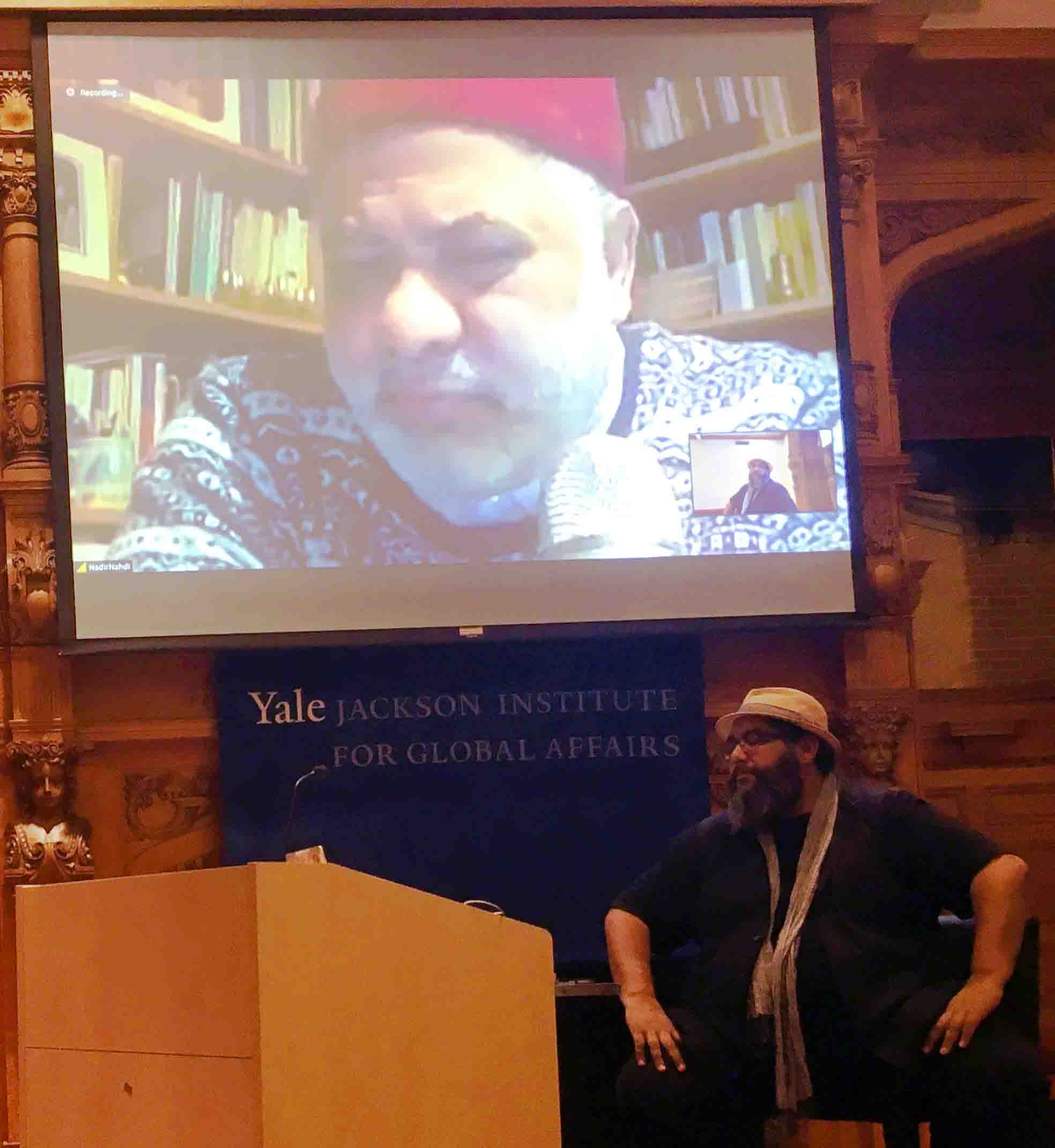
Few reporters can say they have had tea with Tony Blair or conversed with Osama bin Laden. Perhaps none besides Fuad Nahdi, a lifetime journalist who has reported extensively on the Muslim world, can say they have done both.
Nahdi spoke to members of the Yale community at the Jackson Institute for Global Affairs on Monday night about his experiences as a pioneer for interfaith conversations and the role they have played in his journalism career. He spent much of his career working for different publications before starting his own platform, Q-News, to cover news relevant to the Muslim community and to serve as a platform for Muslim journalists.
The event was chaired by Yale Greenberg World Fellow Abdul Rehman-Malik, a journalist who works with Nahdi at his organization, Radical Middle Way, which engages young Muslim groups to foster debates about religion and politics, according to the its website.
“As a journalist, Fuad has had the opportunity to be in all kinds of interesting places,” Rehnan-Malik said. “In some ways, he is the thinking man’s Forrest Gump and usually enough [finds] himself at these key moments of history, particularly in relation to the Islamic world.”
Although Nahdi was barred from boarding a flight from London to the United States because of travel restrictions put in place by the Trump administration, he was able to speak via video call and plans to come to New Haven for another event after applying for a visa. He discussed his early life, career and some of his experiences meeting major historical figures with an audience of 15 people.
Nahdi reflected on a lunch he had in 1994 with Osama bin Laden, then a representative of Islamic forces battling the Russian empire. At the time, Nahdi said bin Laden seemed “charismatic” and “intelligent,” and spoke with Nahdi about the “humiliation of the Muslim people” and about Nahdi’s opinions of the West.
Nahdi later recalled his conversations with former British Prime Minister Tony Blair, with whom he spoke several times about Muslim relations with the British government. Nahdi also described the moment when he met former President Barack Obama during one of Obama’s visits to the United Kingdom. When he met the former president and his wife for breakfast, Nahdi said, he extended his hand to Michelle Obama first.
“Sorry, Mr. President, but I meet Kenyans all the time,” Nahdi recalled saying.
According to Nahdi, part of his ability to work across cultures and faiths is based on his diverse childhood experience. Although he is a Muslim of Indonesian, Yemeni and East African descent, he attended Catholic boarding school in Kenya because his parents believed it would provide the best education.
Nahdi noted that, since the 9/11 attacks and the 7/7 attacks in Britain, some media portrayals of Islam have sought to draw a distinction between moderate and extreme Islam. Nahdi rejected labelling himself as a moderate Muslim, saying that it is dangerous to allow the media to designate people in this way.
“There is only one definition of Muslim, and that is Muslim,” Nahdi said.
Nahdi expressed concern for the future of his profession, saying that “nobody cares about the truth anymore.” He explained that news outlets seem to care more about the number of hits their stories get than conducting thorough and unbiased reporting.
But Nahdi added that he is optimistic about the new generation of reporters’ ability to change the direction of journalism and other global problems, adding that they should work for the benefit of their communities.
“I think we always compartmentalize history and people, and then to see someone who can casually name-drop that he’s met Nelson Mandela and Peter Gabriel and [former President Barack] Obama and all these people is really cool,” said Eric Krebs ’21, who attended the event.
The World Fellows program was established in 2002.
Carolyn Sacco | carolyn.sacco@yale.edu







